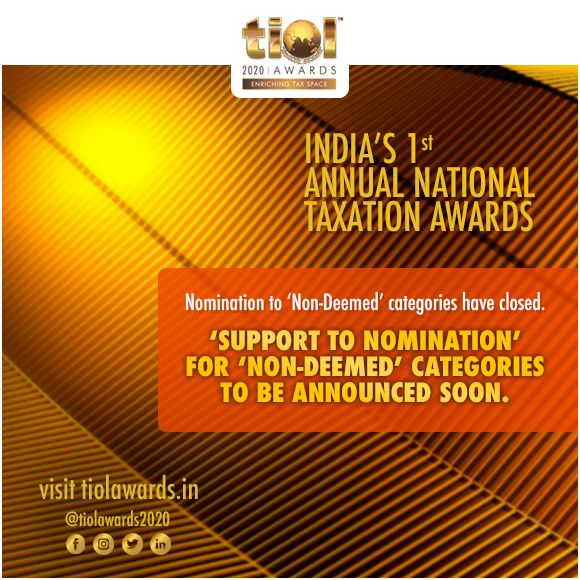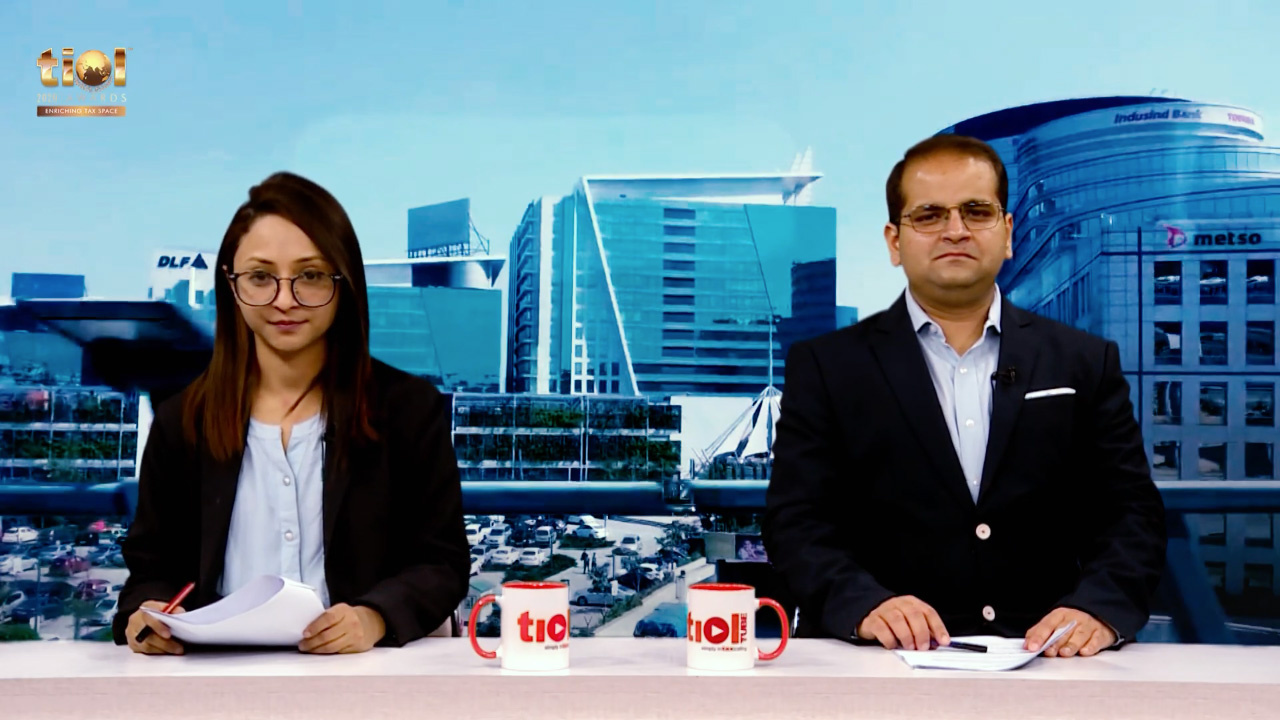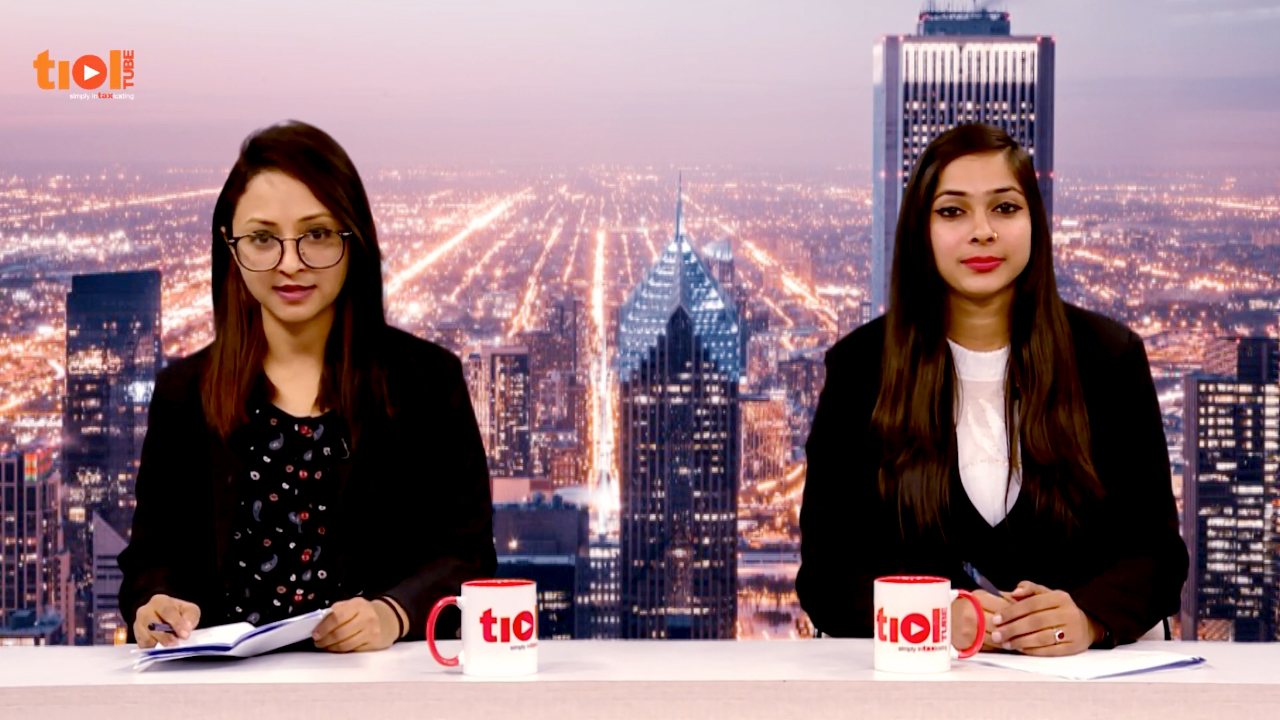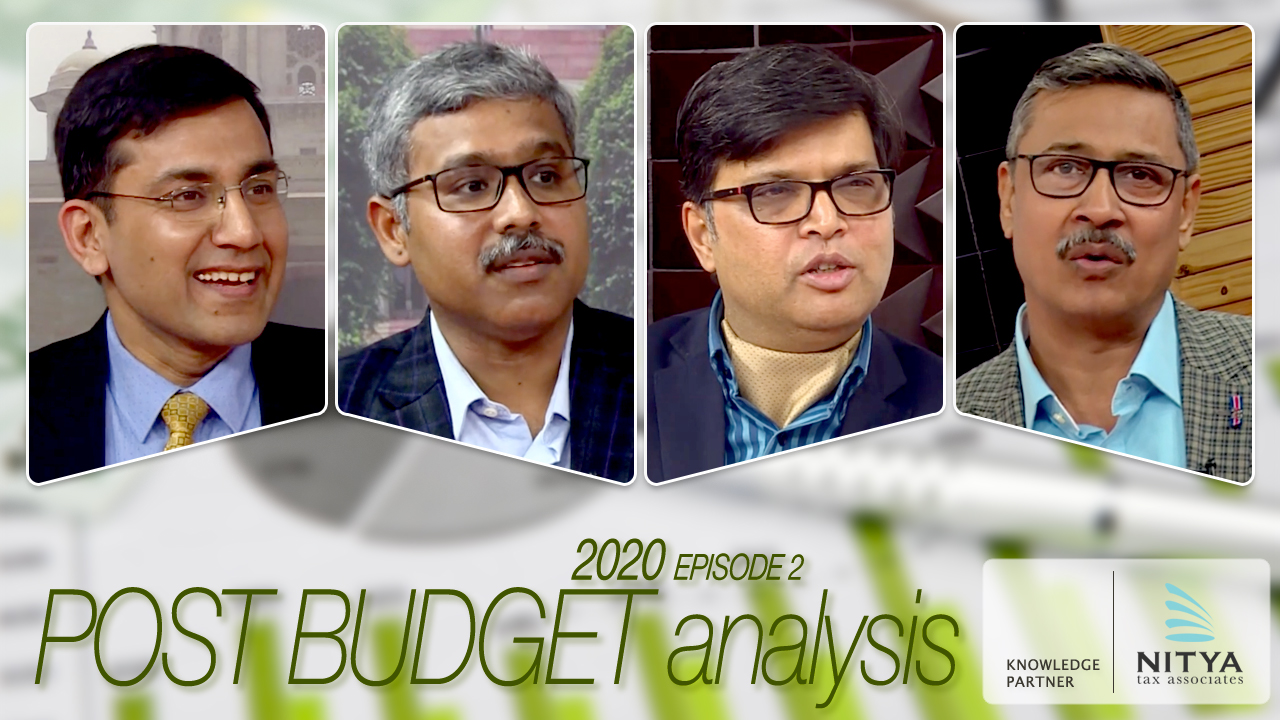| SERVICE TAX
2020-TIOL-399-CESTAT-DEL Baba Super Minerals Pvt Ltd Vs CCGST
ST - Refund - CENVAT - Rule 5 of CCR, 2004 - 41/2012-ST amended by 1/2016-ST - Refund claim of Rs.8,52,102/- was filed by the appellant for refund of service tax paid on the services used beyond the factory or any other place or premises of production or manufacture of said goods for export of said goods - Out of this amount, refund claim of Rs.8,320/- has been rejected for want of improper invoice/ draft invoice as all the details required under Rule 4A (Sub-rule 1) of Service Tax Rules, 1994 are not available in the invoices - also an amount of Rs.17,430/- is in respect of banking services is alleged to not having been used in export of services - accordingly, a total refund claim of Rs.27,931/- is rejected and as this order was upheld by Commissioner(A), the appellant is before the CESTAT.
Held:
+ It is a settled law that so long there is a substantive compliance of the Notification the benefit cannot be denied and a mere clerical error should not be the ground of rejection of refund claim or the benefit - In view thereof the allegation of invoice being a mere draft invoice is not sustainable especially when there is no other document in possession of the Department to falsify the invoices produced by the appellant on record - rejection of refund claim of Rs.8,320/- on the ground of inadmissible invoices is not sustainable: CESTAT [para 6]
+ Banking services are related to collection of export proceeds, therefore, is an input service - Tribunal decision in Alps Industries Ltd. - 2016-TIOL-393-CESTAT-DEL relied upon - refund of Rs.17,430/- cannot be denied: CESTAT [para 7]
- Appeal allowed: DELHI CESTAT
2020-TIOL-398-CESTAT-HYD
Commissioner Siddipet Muncipality Vs CCT
ST - Renting of Immovable property - Applicant has sought an early hearing of their appeal on the ground that by issuance of Notification No 1/2018-ST dated 30th November 2018, the appellant would not be required to discharge service tax during the relevant period.
Held: This notification 1/2018-ST was issued after the impugned order dated 20.02.2016 was passed by the adjudicating authority, therefore, matter requires to be examined to test its applicability to the facts and circumstances of the present case - Consequently, matter is remanded to the adjudicating authority to pass an appropriate order after giving an opportunity of hearing to the appellant: CESTAT [para 6, 7]
- Matter remanded: HYEDRABAD CESTAT
CENTRAL EXCISE
2020-TIOL-397-CESTAT-DEL
API Ispat And Powertech Pvt Ltd Vs CC & CE
CX - It is the case of the department that iron ore fines are needed to be considered as exempted goods being sold for consideration during the relevant period and the assessee is required to pay an amount of Rs.13,01,502/- as being equal to 6% of the total price of the exempted finished goods under Rule 6(3)(i) of CCR, 2004.
Held: Appellant procures iron ore as the input for manufacturing sponge iron - The said iron ore lumps of different sizes are first crushed and are then segregated by screening - It is thereafter that requisite sized iron ore/ore lump is feeded in the sponge iron kiln - It is in the aforesaid process of segregation that the iron ore fines are inevitably generated - These fines, cannot be considered as the result of the manufacturing activity - It is not the case of the respondent that sieving out of the finer input from coarser one will be a manufacturing activity - The iron ore fines are, therefore, held not to be the excisable commodity - embargo created in Rule 6(3)(b) of CCR will not apply for removal of iron ore fines from the appellant's factory - The findings of original adjudicating authority are found to be correct and the findings in the impugned order under challenge being contradictory to this effect are held liable to be set aside - orders under challenge are set aside and appeals are allowed: CESTAT [para 8 to 10]
- Appeals allowed: DELHI CESTAT
2020-TIOL-396-CESTAT-KOL
CCE & ST Vs Tata Steel Ltd
CX - Ingot moulds, in the instant case, on an application of the principles laid down in the cited decisions, is an "accessory" of the LD Converter, which undisputedly is capital goods under clause (i) of the said Rules - The technical literature and IS Specification produced by TSL also establish that in the ingot process of steel making, an ingot mould is an essential accessory without which steel product making is not possible - Electrodes, electrode wires and rods were all used, though indirectly, in the manufacture of final product in TSL's factory - Hence, though declared as "capital goods", these goods are eligible to cenvat credit as "input" under Rule 2(g) of the Cenvat Credit Rules, 2002 - Cenvat credit is also admissible on welding wires and rods - insofar as remaining goods are concerned, considering the small amounts involved, assessee does not press for the same - Assessee appeal partly allowed - Penalty imposed is set aside - Revenue appeal is dismissed: CESTAT [para 13.7.5, 13.8, 14.4.2., 14.5, 15, 15.1]
- Assessee appeal partly allowed/Revenue appeal dismissed: KOLKATA CESTAT
CUSTOMS
2020-TIOL-395-CESTAT-MAD Compuage Infocom Ltd Vs PR CC
Cus - Appellant filed a Bill-of-Entry for the clearance of 'Closed Circuit Television (CCTV) Cameras' and since the goods were of Korean origin, the appellant, under the self-assessment scheme, assessed the same at 'Nil' rate of Basic Customs Duty (BCD) in terms of Notification No. 152/2009-Cus. (Sl. No. 833) dated 31.12.2009 - Asstt. Commr. did not accept the Nil rate of BCD and charged BCD @15% which order was upheld by Commissioner(A) - importer is before the CESTAT and submits that the Adjudicating Authority should have accepted the classification of the CCTV under CTH 8525 8010 itself without re-classifying the same under CTH 8525 8090; that similar goods, imported by another importer were classified under CTH 8525 8010 by the Customs at New Delhi; that the Republic of Korea followed a Harmonized Commodity Description and coding system and the supplier issued the certificate of origin classifying the imported goods under CTH 8525 8010 only.
Held: A close look at the above Bills-of-Entry reveals that there are differences as regards the descriptions of the imported goods are concerned - In any case, there is no dispute that the appellant itself had classified under CTH 8525 8090 in its Bill-of-Entry under dispute and thereby effectively prevented the Revenue from questioning further - From the HSN Note read with the Customs Tariff Heading 8525, Bench finds that there is no entry specifically for CCTV cameras and it is nowhere even hinted that CCTV cameras, which according to the appellant are neither digital cameras nor video camera recorders, would fall under the category of television cameras itself and hence, this argument of the assessee cannot be accepted - For these reasons, they cannot be classified under television camera, but rightly under "Others" for the period in dispute, since we cannot add or substitute our views/opinions, to negate Revenue's classification, just to go with appellant's claim which is based only on arguments - no merit in appeal, hence rejected: CESTAT [para 6.2, 7, 8]
- Appeal rejected: CHENNAI CESTAT
2020-TIOL-394-CESTAT-AHM
Indian Oil Corporation Ltd Vs CC
Cus - Appellants were exporting Benzene under Merchandise Export from India Scheme (MEIS) - As required under Public Notice no. 09/2015-20, the exporters were required to declare the intention to avail MEIS by marking/ticking of "Y" in the "Reward" column in shipping bills against each item - Appellant submits that the CHA inadvertently marked "N" instead of "Y" in the said column, therefore, they sought amendment in the said shipping bills by changing the mark from "N" to "Y", but which was denied, hence the present appeal.
Held: Issue is covered by the decision of High Court of Kerala in the case of Saint Gobain India - 2018-TIOL-2981-HC-KERALA-CUS - Moreover, the amendment claimed by the appellant is not in the nature of change in the shipping bills which may require evidence to prove - They are not intending to change description of goods or quantity of goods which would require any documentary evidence and the only reason they are requiring to amend their shipping bill is their intention of avail the benefit of a particular scheme - Benefit of section 149 of the Customs Act, therefore, cannot be denied - appeal is allowed: CESTAT [para 4]
- Appeal allowed: AHMEDABAD CESTAT
|








